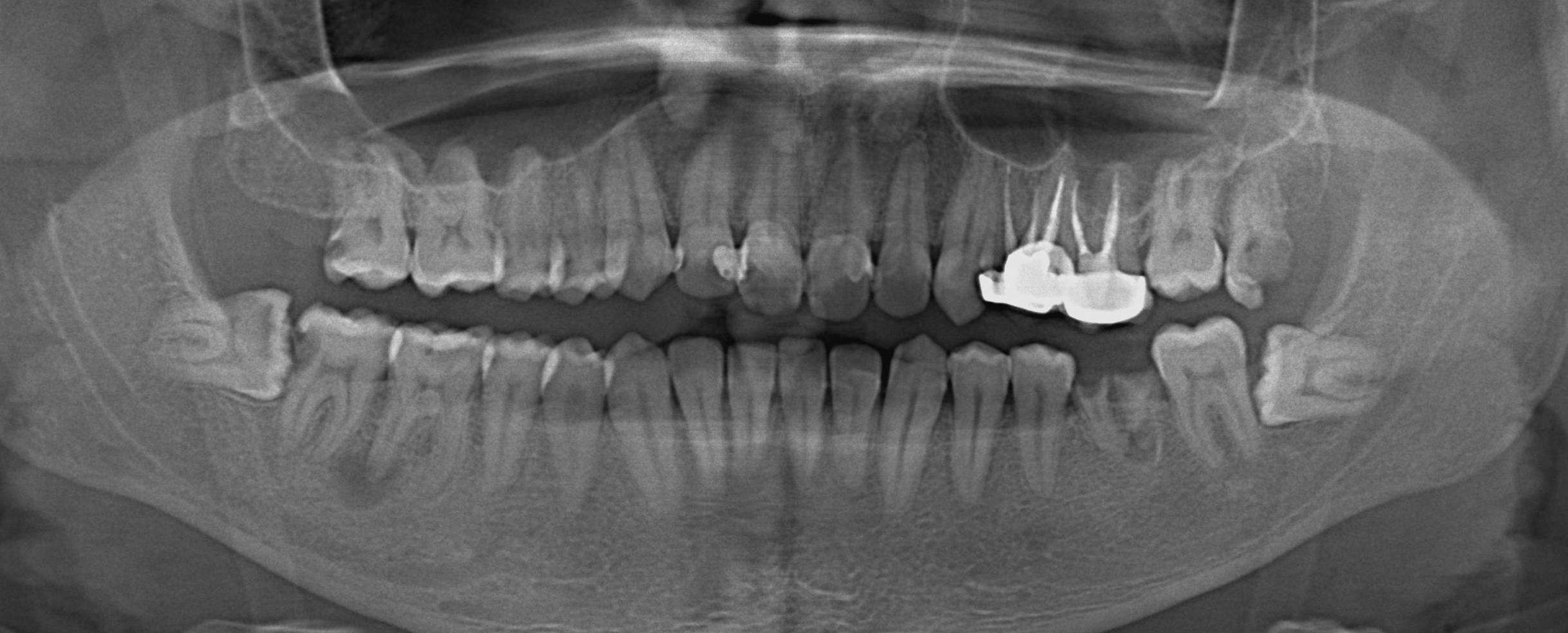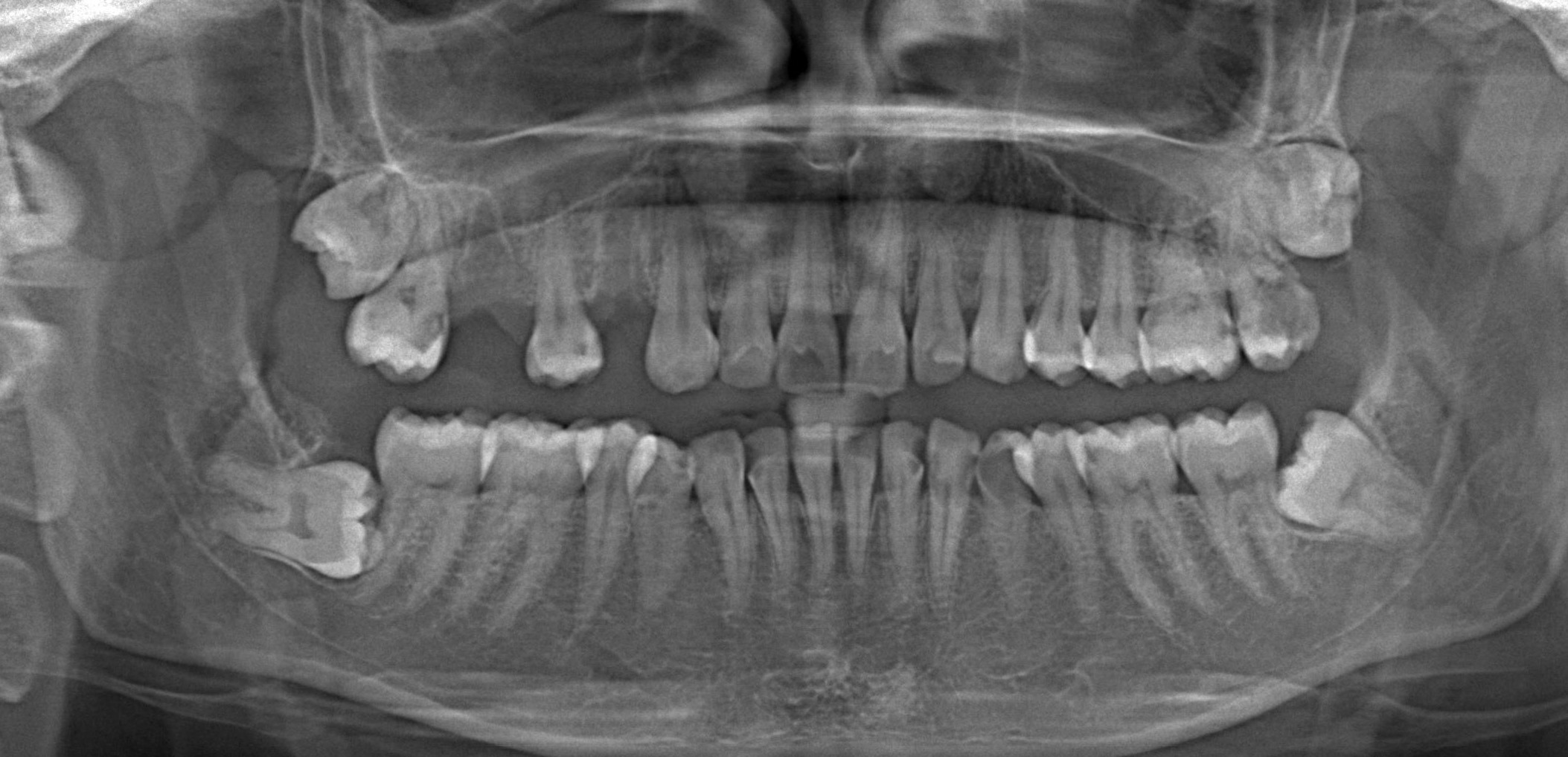Common Surgeries & Recovery Tips
Why the need for a Tooth Extraction / Removal ?
If a tooth has been broken or damaged by decay, your dentist will try to fix it with a filling, crown or other dental treatment. But when there's too much damage for the tooth to be repaired, the tooth may need to be extracted — or removed — from its socket in the bone.
Long Standing cases of Decay leads to the infection reaching the tooth and infecting the surrounding areas.. as shown in the image. In such cases, there is associated destruction of tooth supporting tissues and it requires complete removal to prevent the spread of infection..
At Dentkraft, we have our team of oral surgeons who carry out the treatment in least traumatic way.

Why Wisdom teeth requires removal?
Not all wisdom teeth require to be removed. But in cases where they are impacted, or grossly decayed beyond repair and causing damage to adjacent functional teeth, they require to be surgically removed from the bone.
These surgeries are often called Dis-impaction Surgeries and are carried out by our team of specialist.


What should I do after a tooth is removed?
Surgical extractions generally cause some discomfort after the procedure than simple extractions. The level of discomfort and how long it lasts will depend on how difficult it was to remove the tooth. Your dentist may prescribe pain medicine for a few days. Most pain disappears after a couple of days.
Here are a few tips to help minimize your discomfort and speed recovery:
- You can put ice packs on your face to reduce swelling. Typically, they are left on for 20 minutes at a time and removed for 20 minutes. If your jaw is sore and stiff after the swelling goes away, try warm compresses.
- Eat soft and cool foods for a few days.
- A gentle rinse with warm salt water, started 24 hours after the surgery, can help to keep the area clean.
- Most swelling and bleeding ends within a day or two after the surgery. Complete healing takes at least two weeks.
- You should not smoke, use a straw or spit after surgery. These actions can pull the blood clot out of the hole where the tooth was and lead to secondary infection.
- If you need stitches, your doctor may use the kind that dissolves on their own. This usually takes one to two weeks. Some stitches need to be removed by the dentist or surgeon. At Dentkraft, we provide you with dissolvable as well as non-dissolvable stitches or sutures, depending upon the requirement of your case.
After your surgery is complete, we provide you with a set of printed instructions which you can take home. It helps you to take care of the wound better.

 Our Location
Our Location +91 900 412 0002
+91 900 412 0002